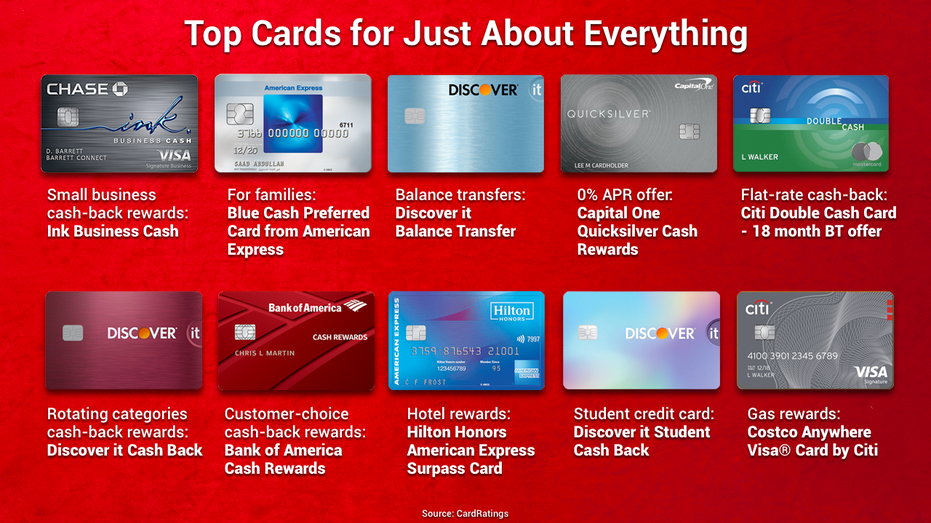What Is The Best Credit Card Consolidation Loan
What Is The Best Credit Card Consolidation Loan
Welcome, readers! If you’re feeling overwhelmed by multiple credit card payments and high interest rates, a credit card consolidation loan might be the solution for you. By combining your debts into one loan with a lower interest rate, you can simplify your finances and potentially save money in the long run. But with so many options available, how do you know which is the best credit card consolidation loan for your situation? Let’s explore some key factors to consider when choosing the right consolidation loan for you.
Understanding Credit Card Consolidation Loans
So, you’re drowning in credit card debt and feeling overwhelmed by multiple payments and high interest rates. It’s time to consider a credit card consolidation loan. But what exactly is a credit card consolidation loan and how can it help you get out of debt?
A credit card consolidation loan is a type of personal loan that you can use to pay off your existing credit card debt. Instead of making multiple payments to different credit card companies each month, you can consolidate all of your debt into one loan with a fixed interest rate. This can make it easier for you to manage your debt and potentially save you money on interest payments in the long run.
One of the main benefits of a credit card consolidation loan is that it can help you simplify your finances. Instead of keeping track of multiple due dates and minimum payments, you only have to worry about one monthly payment. This can help you avoid missed payments and late fees, which can further add to your debt burden.
Additionally, a credit card consolidation loan can also help you save money on interest payments. Credit cards often come with high interest rates, especially if you have a lot of debt. By consolidating your debt with a loan that has a lower interest rate, you can potentially save hundreds or even thousands of dollars in interest over the life of the loan.
Before taking out a credit card consolidation loan, it’s important to shop around and compare different loan options. Look for a loan with a competitive interest rate and favorable terms, such as no origination fees or prepayment penalties. You should also make sure you understand the total cost of the loan, including any fees or charges that may be associated with it.
It’s also important to consider whether a credit card consolidation loan is the right option for you. While consolidating your debt can help simplify your finances and potentially save you money on interest, it’s not a one-size-fits-all solution. Make sure you weigh the pros and cons of a credit card consolidation loan before making a decision.
In conclusion, a credit card consolidation loan can be a helpful tool for managing and paying off your credit card debt. By consolidating your debt into one loan with a fixed interest rate, you can simplify your finances and potentially save money on interest payments. Just make sure you do your research and carefully consider whether a credit card consolidation loan is the right option for you.
Comparing Interest Rates and Fees
When considering a credit card consolidation loan, one of the most important factors to look at is the interest rate. The interest rate on the loan will determine how much you will end up paying over time. It’s essential to compare interest rates from different lenders to find the best deal for your financial situation. Some lenders may offer fixed interest rates, which stay the same throughout the life of the loan, while others may offer variable rates, which can change based on market conditions. Make sure to carefully read the terms and conditions of each loan to understand how the interest rate is calculated and if there are any potential rate hikes in the future.
In addition to interest rates, it’s important to consider the fees associated with the credit card consolidation loan. Lenders may charge origination fees, application fees, prepayment penalties, or other fees that can add to the overall cost of the loan. Some lenders may also charge annual fees or monthly maintenance fees on the loan, so be sure to factor these into your decision-making process. Look for lenders that have transparent fee structures and offer competitive rates to ensure you are getting the best deal possible.
When comparing interest rates and fees, it’s also important to consider the loan term. The loan term refers to the length of time you have to repay the loan. A longer loan term may result in lower monthly payments but could end up costing more in interest over the life of the loan. On the other hand, a shorter loan term may have higher monthly payments but could save you money in interest payments. Consider your financial goals and budget when deciding on a loan term that works best for you.
Ultimately, the best credit card consolidation loan will have competitive interest rates, low fees, and a loan term that fits your financial needs. Take the time to compare offers from different lenders, read the fine print, and choose a loan that will help you get out of debt faster and save money in the long run. By comparing interest rates and fees, you can make an informed decision and take control of your finances.
Qualifying for a Consolidation Loan
When it comes to qualifying for a consolidation loan, there are a few key factors that lenders will consider. The first thing lenders will look at is your credit score. Typically, you will need a credit score of at least 600 to qualify for a consolidation loan. However, the higher your credit score, the better your chances of being approved for a loan with favorable terms and interest rates. If your credit score is lower than 600, you may still be able to qualify for a consolidation loan, but you may be subject to higher interest rates and less favorable terms.
In addition to your credit score, lenders will also look at your debt-to-income ratio. This is the amount of debt you have compared to your income. Lenders want to see that you have enough income to comfortably make the monthly payments on the consolidation loan. Typically, lenders prefer to see a debt-to-income ratio of 40% or lower. If your debt-to-income ratio is higher than 40%, you may have a harder time qualifying for a consolidation loan.
Another factor that lenders will consider is your employment status and stability. Lenders want to see that you have a steady source of income and are likely to continue to have income in the future. If you are self-employed or have irregular income, it may be more difficult to qualify for a consolidation loan. Lenders may also look at your employment history to see how long you have been with your current employer and how stable your job is.
Finally, lenders will also look at your overall financial picture, including your assets and liabilities. They want to see that you have assets that can be used as collateral for the loan, such as a home or a car. They also want to see that you have a plan in place to pay off the loan and improve your financial situation in the future. If you can show that you have a solid plan for managing your debt and improving your financial health, you will have a better chance of qualifying for a consolidation loan.
Benefits of Consolidating Credit Card Debt
When it comes to managing multiple credit card debts, consolidating them into a single loan can be a smart financial move. Here are the top benefits of consolidating credit card debt:
1. Simplified Payment Structure: One of the main benefits of consolidating credit card debt is that it simplifies your payment structure. Instead of having to juggle multiple due dates and minimum payments, you only have to worry about making one payment each month. This can help you stay organized and avoid late payments that could harm your credit score.
2. Lower Interest Rates: Credit card consolidation loans often come with lower interest rates than credit cards. By consolidating your credit card debt into a single loan with a lower interest rate, you can save money on interest charges and pay off your debt faster. This can also help you save money in the long run.
3. Fixed Monthly Payments: Another benefit of consolidating credit card debt is that it can provide you with fixed monthly payments. With credit cards, the minimum payment can fluctuate based on your balance and interest rate. By consolidating your debt into a loan with a fixed monthly payment, you can budget more effectively and know exactly how much you need to pay each month.
4. Improved Credit Score: Consolidating credit card debt can also have a positive impact on your credit score. When you consolidate your debts, it can lower your credit utilization ratio, which is the amount of credit you are using compared to the amount you have available. A lower credit utilization ratio can improve your credit score and make you more attractive to lenders.
Additionally, consolidating your credit card debt can also help you avoid missing payments and reduce the likelihood of maxing out your credit cards, both of which can negatively impact your credit score. By managing your debt more effectively through consolidation, you can improve your overall financial health and increase your creditworthiness.
In conclusion, consolidating credit card debt can offer a range of benefits, from simplifying your payment structure to saving money on interest charges. If you are struggling to keep up with multiple credit card payments and want to take control of your debt, consider exploring credit card consolidation options to help you achieve financial stability and peace of mind.
Finding the Right Lender for Your Needs
When it comes to finding the best credit card consolidation loan, it’s important to carefully consider the lender you choose to work with. The right lender can make a big difference in your overall experience and the success of your consolidation efforts. Here are some key factors to consider when evaluating potential lenders:
1. Reputation: One of the first things to look for in a lender is their reputation. Do some research to see what other borrowers have to say about their experiences with the lender. Look for reviews and ratings online, and pay attention to any red flags that may indicate a lender is not trustworthy or reputable.
2. Interest Rates: Another important factor to consider is the interest rates offered by the lender. Be sure to shop around and compare rates from multiple lenders to ensure you’re getting the best deal possible. Keep in mind that some lenders may offer promotional rates or discounts for certain borrowers, so be sure to ask about any potential savings opportunities.
3. Fees: In addition to interest rates, it’s important to consider any fees associated with the loan. Some lenders may charge origination fees, prepayment penalties, or other fees that can add to the overall cost of the loan. Be sure to ask about any potential fees upfront and factor them into your decision-making process.
4. Customer Service: A lender’s customer service can also play a big role in your overall experience. Look for a lender that is responsive, helpful, and easy to work with. You’ll want to feel comfortable reaching out to your lender with any questions or concerns that may arise throughout the consolidation process.
5. Flexibility: Lastly, it’s important to consider a lender’s flexibility when it comes to repayment options. Look for a lender that offers a variety of repayment plans, including options for extending or adjusting the terms of your loan if needed. Flexibility can be crucial in helping you manage your debt and stay on track with your repayment schedule.
By carefully considering these factors and doing your homework when evaluating potential lenders, you can find the right credit card consolidation loan for your needs. Remember to take your time, ask questions, and compare options to ensure you’re making the best decision for your financial situation.






